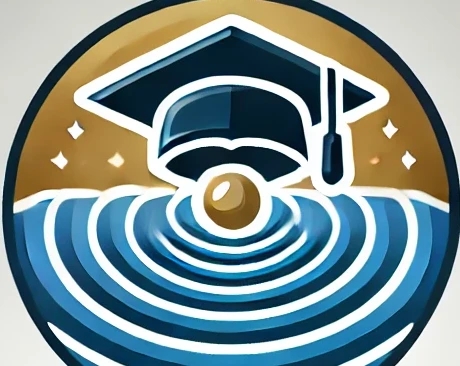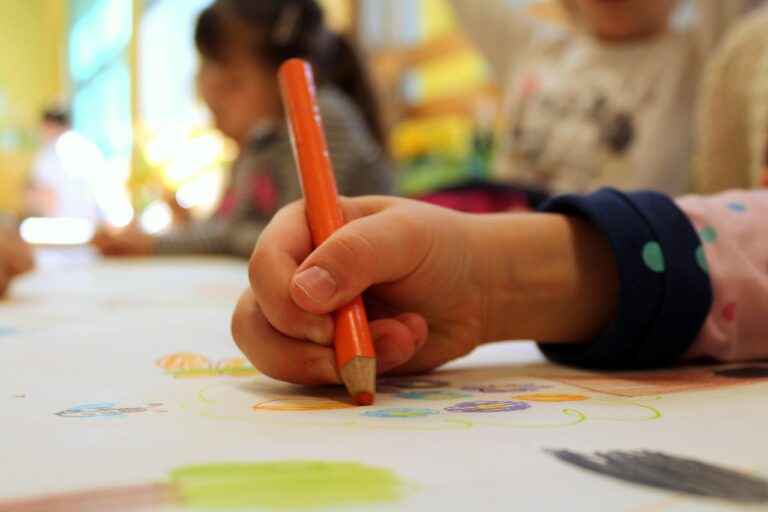weekly Scheme Of Work Primary 6
1. English Language
The 3rd Term English Language curriculum emphasizes speech work, reading comprehension, grammar, and writing skills.
Weekly Breakdown:
Week 1: Revision of Second Term’s work
Week 2: Speech Work: Making verbal reports; Reading: Teaching of new words, meanings, and comprehension; Structure: Reading simple materials on the organization of formal gatherings; Grammar: Composition of adverbs; Writing: Writing informal letters and understanding their features; Verbal Aptitude
Week 3: Speech Work: Giving formal speeches; Reading: Comprehension passages; Grammar: Sentence construction; Writing: Formal letters
Week 4: Speech Work: Stress patterns in words; Reading: Comprehension passages; Grammar: Parts of speech; Writing: Narrative essays
Week 5: Speech Work: Intonation patterns; Reading: Comprehension passages; Grammar: Tenses; Writing: Descriptive essays
Week 6: Speech Work: Pronunciation drills; Reading: Comprehension passages; Grammar: Active and passive voice; Writing: Argumentative essays
Week 7: Mid-Term Test
Week 8: Speech Work: Debate practice; Reading: Comprehension passages; Grammar: Direct and indirect speech; Writing: Expository essays
Week 9: Speech Work: Role-playing; Reading: Comprehension passages; Grammar: Conditional sentences; Writing: Report writing
Week 10: Speech Work: Storytelling; Reading: Comprehension passages; Grammar: Question tags; Writing: Letter to the editor
Week 11: Revision
Week 12: Third Term Examination
2. Mathematics
The 3rd Term Mathematics curriculum covers various topics, including open sentences, angles, and everyday statistics.
Weekly Breakdown:
Week 1: Revision of Second Term’s work
Week 2: Open Sentences – Solving problems expressed as open sentences
Week 3: Angles – Measuring angles using a clock; Understanding degrees
Week 4: Angles – Drawing angles; Sum of angles at a point
Week 5: Everyday Statistics – Understanding range, mode, mean, and median
Week 6: Everyday Statistics – Creating and interpreting bar charts and pie charts
Week 7: Mid-Term Test
Week 8: Revision of topics covered
Week 9: Revision of topics covered
Week 10: Revision of topics covered
Week 11: Revision
Week 12: Third Term Examination
3. Basic Science and Technology
The 3rd Term Basic Science and Technology curriculum introduces pupils to simple machines and the concept of force.
Weekly Breakdown:
Week 1: Revision of Second Term’s work
Week 2: Simple Machines – Levers: Meaning, parts, and uses
Week 3: Simple Machines – Pulleys: Meaning, types, and applications
Week 4: Simple Machines – Inclined Planes: Meaning and advantages
Week 5: Force – Meaning, types, and effects on materials
Week 6: Energy – Forms and sources of energy
Week 7: Mid-Term Test
Week 8: Energy – Conversion and conservation of energy
Week 9: Environment – Components and importance of the environment
Week 10: Environment – Pollution: Types, causes, and prevention
Week 11: Revision
Week 12: Third Term Examination
4. Computer Studies (Information Technology)
This term focuses on the applications of computers in society, emphasizing both small-scale and large-scale uses.
Weekly Breakdown:
Week 1: Review of last term’s work on Microsoft Paint
Week 2: Computer and the Society – Small Scale Applications (e.g., digital wristwatches, computer games, computerized door locks)
Week 3: Computer and the Society – Large Scale Applications (e.g., automated traffic control, word processing)
Week 4: Social Media – Meaning, types, and uses
Week 5: Misuse of Computers – Cybercrimes, addiction, and prevention
Week 6: Career Opportunities in Computing – Various ICT career paths
Week 7: Mid-Term Test
Week 8: Scratch Programming – Introduction to Scratch and its applications
Week 9: Scratch Programming – Creating simple projects
Week 10: Scratch Programming – Developing a project on environmental issues (e.g., ocean clean-up)
Week 11: Revision
Week 12: Third Term Examination
5. Physical and Health Education (PHE)
This term emphasizes physical fitness, martial arts, and health education.
Weekly Breakdown:
Week 1: Revision of Second Term’s work
Week 2: Food and Nutrition – Concepts, sources, and nutritional deficiency diseases
Week 3: Deficient People – Characteristics and effects of family size on nutrition
Week 4: Judo Martial Art – Meaning, types, history, and importance
Week 5: Judo Rules and Skills – Basic rules and techniques
Week 6: Recreation – Leisure and dancing activities; local dances and their significance
Week 7: Mid-Term Test
Week 8: Pathogens – Meaning, types, and disease prevention
Week 9: Diseases – Concepts, signs, symptoms, and differences between sickness and illness
Week 10: Issues and Challenges in Physical and Health Education – Effects of drug abuse and their consequences
Week 11: Revision
Week 12: Third Term Examination
6. Cultural and Creative Arts (CCA)
This term focuses on values, maintenance, and the relationship between them.
Weekly Breakdown:
Week 1: Values and Maintenance I – Meaning of value and maintenance
Week 2: Values and Maintenance II – Relationship between values and maintenance
Week 3: Elements of Design – Line, shape, texture, color, and space
Week 4: Definition of Music – Understanding music and its components
Week 5: Definition of Dance – Types and significance of dance
Week 6: Impersonation – Meaning and examples in performance arts
Week 7: Mid-Term Test
Week 8: Mode of Greeting – Cultural greetings and their importance
Week 9: Traditional Attires – Types and significance in various cultures
Week 10: Art Exhibition – Planning and organizing an art exhibition
Week 11: Revision
Week 12: Third Term Examination
7. Agricultural Science
This term introduces pupils to livestock production and crop farming techniques.
Weekly Breakdown:
Week 1: Review of last term’s work
Week 2: Livestock Production – Rabbit Rearing: Meaning, importance, and methods
Week 3: Poultry Chickens I – Meaning and importance of poultry; ways of rearing poultry
Week 4: Poultry Chickens II – Types of poultry breeds and their characteristics
Week 5: Fish Farming – Introduction to aquaculture and its benefits
Week 6: Crop Farming – Types of crops and farming methods
Week 7: Mid-Term Test
Week 8: Soil Fertility – Factors affecting soil fertility and improvement methods
Week 9: Agricultural Tools – Identification and uses of common tools
Week 10: Harvesting and Storage – Methods and importance
Week 11: Revision
Week 12: Third Term Examination
8. Home Economics
This term focuses on practical skills in sewing and craft-making.
Weekly Breakdown:
Week 1: Sewing Machines – Types and functions of sewing machines
Week 2: Uses and Care of Sewing Machines – Proper usage and maintenance
Week 3: Measuring and Sewing Tools – Identification and uses
Week 4: Income-Yielding Crafts – Definition and importance
Week 5: Production of Crafts – Making items like table mats and purses
Week 6: Display of Crafts – Showcasing produced items
Weeks 7–11: Revision
Weeks 12–13: Examination
9. Christian Religious Studies (CRS)
This term explores Christian values, history, and notable figures.
Weekly Breakdown:
Week 1: Choosing a Career – Understanding vocations and the dignity of labor
Week 2: The Coming of Christianity to Nigeria I – Early missionaries and their work
Week 3: The Coming of Christianity to Nigeria II – Growth and challenges
Week 4: Biographies of Nigerian Christian Leaders I – Life and contributions
Week 5: Biographies of Nigerian Christian Leaders II – Continued study
Weeks 6–11: Revision of previous terms’ work
Week 12: Preparation for Promotion Examination
Week 13: Third Term Examination
10. Civic Education
This term emphasizes the role of civil society and moral education.
Weekly Breakdown:
Week 1: Revision of Second Term’s work
Week 2: Civil Society – Meaning and examples in Nigeria
Week 3: Functions and Problems of Civil Society Groups
Week 4: Moral Aspects of Drug Education – Understanding drug abuse and prevention
Weeks 5–10: Revision of previous terms’ work
Weeks 11–12: Examination
11. Security Education
This term introduces pupils to safety measures and the role of security agencies.
Weekly Breakdown:
Week 1: Revision of Second Term’s work
Week 2: Personal Safety – Understanding personal security measures
Week 3: Duties of Security Agencies – Roles of the police and other agencies
Week 4: Community Safety – Importance of community vigilance
Weeks 5–10: Revision of previous terms’ work
Weeks 11–12: Examination


